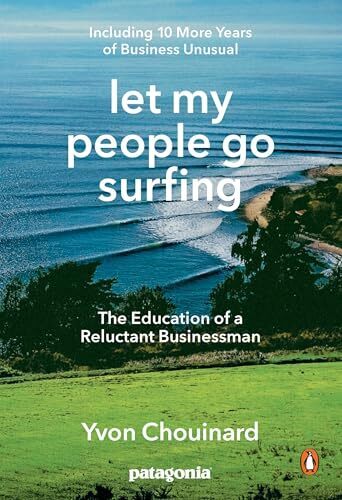
The vast majority of this book is about environmentalism, sustainability, responsible business, healthy work cultures, and how to create a company that is actually a net benefit for the world. It forces you to think about the harm that the vast majority of companies are causing and how we may have to restructure our world to avoid ecological catastrophe. I applaud Yvon Chouinard and Patagonia for their efforts, both in how they build the company, and how they try to raise awareness and encourage other companies to do the same.
That said, I didn’t get too many detailed, actionable takeaways from this book; at least none that apply to my company, which is focused on software. The main takeaway for me is a heightened awareness of just how dire the environmental situation is now, and how much work it’ll take to survive, plus a few smaller detailed points:
-
The difference between an owner and a consumer. Our entire economy is designed to create the latter, to the extent that we are now consuming natural resources at a rate multiple times greater than what the planet can replenish. A capitalist economy, built on a core assumption of continuous growth of consumption, is not inherently sustainable.
-
1% for the planet. Patagonia created and is part of the 1% for the Planet (https://www.onepercentfortheplanet.org/) initiative, a collection of companies that pledge 1% of their revenues each year to environmental causes. A key point here is that this is 1% of revenue, not profit; many companies pledge profits to charity, but it’s mostly a marketing stunt, as they use “creative” accounting to make profits seem minimal. Giving 1% of revenue is much harder, as that’s something you pay whether the company is doing well or not, and isn’t impacted by “creative” accounting practices.
-
The Seventh Generation Principle. This principle, which comes from the Iroquois, is that any decision you make should be for the benefit of the seventh generation in the future (about ~140 years from now). It’s a way to shift the focus from short-term thinking to long-term thinking; a way to get companies to think about sustainability and externalities over decades, rather than just the next quarterly earnings report.
-
Patagonia’s goal is for each of their products to be the best in the market in some specific category. They define the category they want to win explicitly: e.g., their clothes will be the longest lasting, or their carabiner will be the most reliable and reusable, etc.
